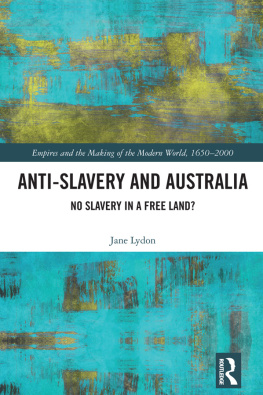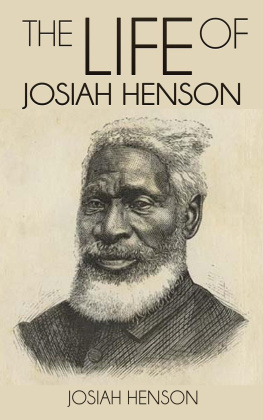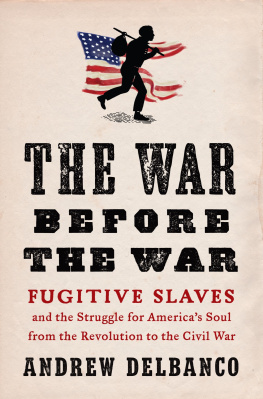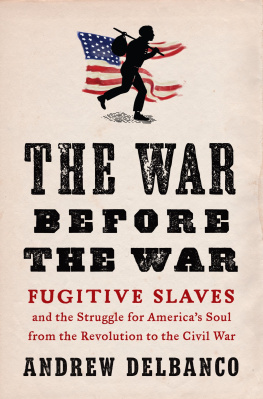Autobiography Of A Fugitive Negro
His Anti-Slavery Labours In The United States, Canada, & England
Samuel Ringgold Ward
Contents:
Autobiography Of A Fugitive Negro
To Her Grace The Duchess Of Sutherland.
Preface.
I. Autobiography.
Chapter I. Family History.
Chapter II. Personal History.
Chapter III. The Fugitives From Slavery.
Chapter IV. Struggles Against The Prejudice Of Colour.
II. Anti-Slavery Labours, &C.
Part I. United States.
Autobiography Of A Fugitive Negro, S. R. Ward
Jazzybee Verlag Jrgen Beck
86450 Altenmnster, Loschberg 9
Germany
ISBN: 9783849643904
www.jazzybee-verlag.de
www.facebook.com/jazzybeeverlag
admin@jazzybee-verlag.de
Autobiography Of A Fugitive Negro
To Her Grace The Duchess Of Sutherland.
MADAM:
The frank and generous sympathy evinced by your Grace in behalf of American slaves has been recognized by all classes, and is gratefully cherished by the Negro's heart.
A kind Providence placed me for a season within the circle of your influence, and made me largely share its beneficent action, in the occasional intercourse of Nobles and Ladies of high rank, who sympathize in your sentiments. I am devoutly thankful to God, the Creator of the Negro, for this gleam of his sunshine, though it should prove but a brief token of his favour; and desire that my oppressed kindred may yet show themselves not unworthy of their cause being advocated by the noblest of all lands, and sustained and promoted by the wise and virtuous of every region.
I cannot address your Grace as an equal; though the generous nobility of your heart would require that I should use no expression inconsistent with the dignity of a man, the creation of God's infinite wisdom and goodness. I cannot give flattering titles, or employ the language of adulation: I should offend your Grace if I did so, and prove myself unworthy of that good opinion which I earnestly covet.
To you, Madam, I am indebted for many instances of spontaneous kindness, and to your influence I owe frequent opportunities of representing the claims of my oppressed race. I should not have felt emboldened to attempt the authorship of this Volume, had it not been for a conviction, sustained by unmistakable tokens, that in all classes, from the prince to the peasant, there is a chord of sympathy which vibrates to the appeals of my suffering people.
Before your Grace can see these lines, I shall be again traversing the great Atlantic. Will you, Madam, pardon this utterance of the deep-felt sentiment of a grateful heart, which can only find indulgence and relief in the humble dedication of this Volume to you, as my honoured patroness, and the generous friend of the Negro people in all lands?
I am not versed in the language of courts or the etiquette of the peerage; but my heart is warm with gratitude, and my pen can but faintly express the sense of obligations I shall long cherish toward your noble House and the illustrious members of your Grace's family, from whom I have received many undeserved kindnesses.
I have the honour to be, Madam,
Your Grace's most obedient and grateful Servant,
SAMUEL RINGGOLD WARD.
LONDON, 31st October, 1855.
Preface.
THE idea of writing some account of my travels was first suggested to me by a gentleman who has not a little to do with the bringing out of this work. The Rev. Dr. Campbell also encouraged the suggestion. I then thought that a series of letters in a newspaper would answer the purpose. Circumstances over which I had no control placed it beyond my power to accomplish the design in that form of publication.
A few months ago I was requested to spend an evening with some ardent friends of the Negro race, by the arrangement of Mrs. Massie, at her house, Upper Clapton. Her zeal and constancy in behalf of the American Slave are well known on both sides of the Atlantic. Nor is there, I believe, a more earnest friend of my kindred race than is her husband. With him I have repeatedly taken counsel on the best modes of serving our cause. Late in August last, Dr. Massie urged on me the propriety of preparing a volume which might remain as a parting memorial of my visit to England, and serve to embody and perpetuate the opinions and arguments I had often employed to promote the work of emancipation. Peter Carstairs, Esq., of Madras, being present, cordially and frankly encouraged the project; and other friends, in whose judgment I had confidence, expressed their warmest approval. My publisher has generously given every facility for rendering the proposal practicable. To him I owe my warmest obligations for the promptitude and elegance with which the Volume has been prepared.
I do not think the gentlemen who advised it were quite correct in anticipating that so much would be acceptable, in a Book from me. I should have gone about it with much better courage if I had not felt some fears on this point. However, amidst many apprehensions of imperfection, I place it before the reader, begging him to allow me a word by way of apology. I was obliged to write in the midst of most perplexing, most embarrassing, private business, and had not a solitary book or paper to refer to, for a fact or passage; my brain alone had to supply all I wished to compose or compile. Time, too, was very limited. Under these circumstances, that I should have committed some slight inaccuracies, will not appear very strange, though I trust they are not very great or material. I beg the reader generously to forgive the faults he detects, and to believe that my chief motive in writing is the promotion of that cause in whose service I live. I hope that this Book will not be looked upon as a specimen of what a well educated Negro could do, nor as a fair representation of what Negro talent can produce--knowing that, with better materials, more time, and in more favourable circumstances, even I could have done much better; and knowing also, that my superiors among my own people would have written far more acceptably.
It will be seen that I have freely made remarks upon other things than slavery, and compared my own with those of other peoples. I did the former as a Man, the latter as a Negro. As a Negro, I live and therefore write for my people; as a Man, I freely speak my mind upon whatever concerns me and my fellow men. If any one be disappointed or offended at that, I shall regret it; all the more, as it is impossible for me to say that, in like circumstances, I should not do just the same again.
The reader will not find the dry details of a journal, nor any of my speeches or sermons. I preferred to weave into the Work the themes upon which I have spoken, rather than the speeches themselves. The Work is not a literary one, for it is not written by a literary man; it is no more than its humble title indicates--the Autobiography of a Fugitive Negro. In what sense I am a fugitive, will appear on perusal of my personal and family history.
S. R. W.
I. Autobiography.
Chapter I. Family History.
I WAS born on the 17th October, 1817, in that part of the State of Maryland, U. S., commonly called the Eastern Shore. I regret that I can give no accurate account of the precise location of my birthplace. I may as well state now the reason of my ignorance of this matter. My parents were slaves. I was born a slave. They escaped, and took their then only child with them. I was not then old enough to know anything about my native place; and as I grew up, in the State of New Jersey, where my parents lived till I was nine years old, and in the State of New York subsequently, where we lived for many years, my parents were always in danger of being arrested and re-enslaved. To avoid this, they took every possible caution: among their measures of caution was the keeping of the children quite ignorant of their birthplace, and of their condition, whether free or slave, when born; because children might, by the dropping of a single word, lead to the betrayal of their parents. My brother, however, was born in New Jersey; and my parents, supposing (as is the general presumption) that to be born in a free State is to be born free, readily allowed us to tell where my brother was born; but my birthplace I was neither permitted to tell nor to know. Hence, while the secrecy and mystery thrown about the matter led me, most naturally, to suspect that I was born a slave, I never received direct evidence of it, from either of my parents, until I was four-and-twenty years of age; and then my mother informed my wife, in my absence. Generous reader, will you therefore kindly forgive my inability to say exactly where I was born; what gentle stream arose near the humble cottage where I first breathed--how that stream sparkled in the sunlight, as it meandered through green meadows and forests of stately oaks, till it gave its increased self as a contribution to the Chesapeake Bay--if I do not tell you the name of my native town and county, and some interesting details of their geographical, agricultural, geological, and revolutionary history--if I am silent as to just how many miles I was born from Baltimore the metropolis, or Annapolis the capital, of my native State? Fain would I satisfy you in all this; but I cannot, from sheer ignorance. I was born a slave--where? Wherever it was, it was where I dare not be seen or known, lest those who held my parents and ancestors in slavery should make a claim, hereditary or legal, in some form, to the ownership of my body and soul.








